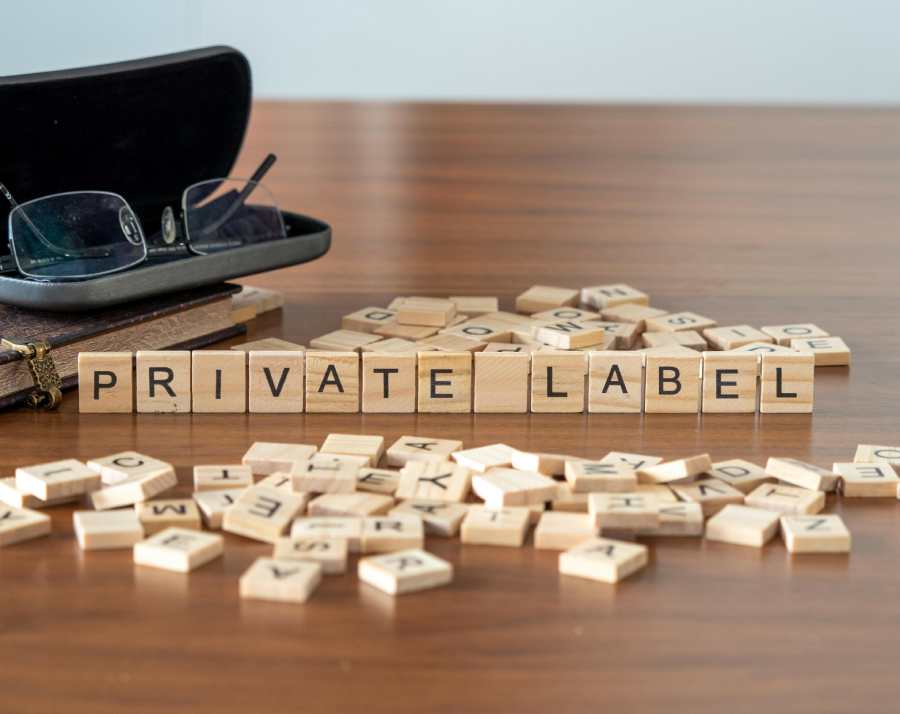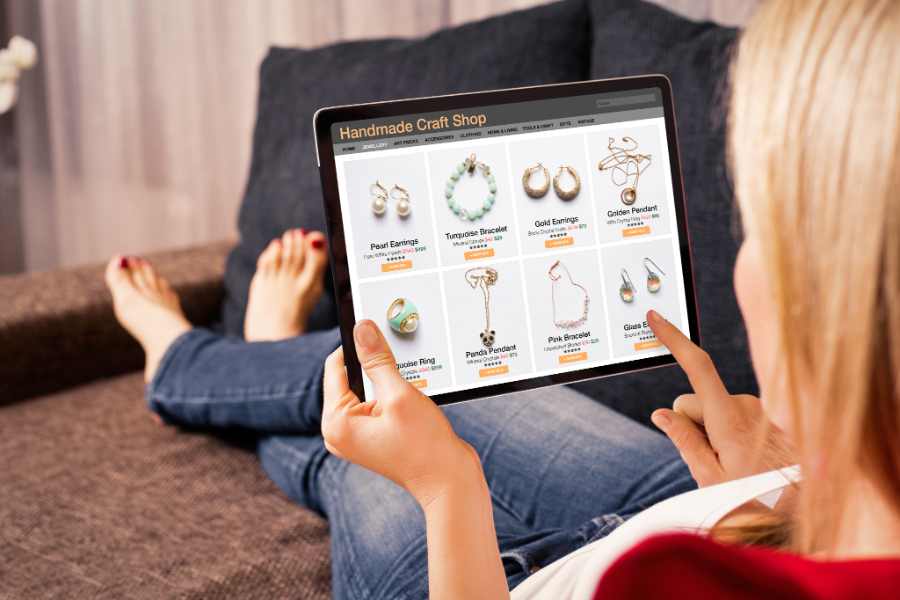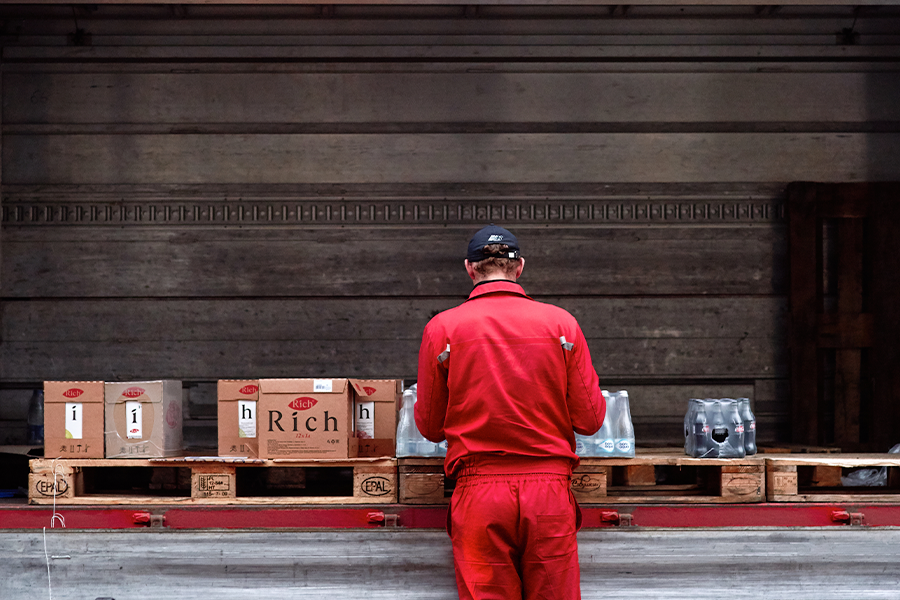
Private labeling is when a manufacturer produces goods or products for another company to sell under its own brand name. It could be a viable option if you want to start a retail business but have no idea about the product development process—all you need is a product idea, and you can find a manufacturer to bring it to life while you focus on building your brand and audience.
But private labeling isn’t just for indie retailers who are getting their start. Many big box brands have doubled down on the strategy for their own businesses. Let’s take a look at what it is, why it’s popular, and if you should try it.
What Is Private Label?
Private label products are typically manufactured by one company and then marketed, sold, and distributed by another under their own branding. This approach allows retailers to outsource their entire product development and production process and instead focus on brand-building and customer relationship management.
Private labeling is gaining traction especially recently as consumers start to focus again on purchase value and put less emphasis on brand relationships. Just shy of 80% of US consumers say they would buy a private label product, and most (89.7%) do so because they believe it’s a better value compared to national brands.
Plus, major retailers have tapped into the opportunity themselves. Target, Walmart, and Macy’s each have their own long lists of private label brands. And Amazon has its own private label strategy online. It’s no wonder private brand dollar share hit 17.7% in 2021.
Private Labels vs White Label Products
Private labeling and white labeling are similar in that they both involve one company producing goods for another company to sell under its own branding.
Retailers have more control when it comes to private labeling, as they can choose their branding, packaging, and marketing. They can even customize the product itself. White labeling offers less customization, and the manufacturer’s branding, labeling, and packaging could still be visible.
How Private Labeling Works
Considering private labeling for your business? Here’s how it generally works:
Product Selection
First, choose a product you want to sell under your brand. This might be a product that already exists or a completely new idea altogether. It’s a good idea to ensure there’s market demand for your idea through product validation.
Customization
Once you know what you want to sell, it’s time to find some suppliers. Work with a manufacturer to customize the product according to your specifications. This could include branding, packaging, design, and sometimes even minor alterations to the product itself.
Manufacturing
Once you’ve customized your product and packaging specs, your supplier can get to work bringing the idea to life. They’ll produce a sample or spec product, sometimes a few, so you can see what it’s like in real life. You’ll want to test your product and ensure it meets your expectations before investing in manufacturing a full batch.
Branding & Packaging
Once you’re happy with the product itself, it’s to customize the packaging. You can design and customize product labels, boxes, logos, stickers, inserts, tags, and other marketing materials to include with each purchase.
Distribution & Sales
Now your product is ready to sell! You can promote and market the products under your own branding through your owned distribution channels. Don’t forget to take a multi-channel approach here—tap into retail stores, ecommerce platforms, online marketplaces, social commerce, and other sales channels to maximize success.
Benefits of Private Labeling
Private labeling offers several advantages for retailers.
More Control
Private labeling offers small business retailers flexibility in product customization. They can work closely with manufacturers to tailor products to specific requirements, including branding, packaging, design, and even product features.
By selling products under their own brand name, they can reinforce brand recognition and build loyalty among consumers. This control also allows them to cater to the unique preferences and needs of their target market.
Outsourced Product Development
There’s no need to figure out the product development process when selling private label products. Instead, product development is outsourced to a provider with expertise in the area. It allows retailers to offer unique products under their own brand without the need for manufacturing facilities or extensive product development.
Private labeling also means retailers have more control over their supply chain. They can select reliable manufacturers, monitor product quality, and ensure timely delivery.
Differentiation
Businesses can offer unique products that are exclusive to their brand. This differentiation can help them stand out from competitors and attract customers who are seeking something distinct or customized.
Challenges of Private Labeling
There’s always a flip side—there are also drawbacks to consider when it comes to private labeling:
Initial Investment
Private labeling often comes with a significant upfront cost, especially for product development, branding, and marketing. It can be tough for new retailers or small businesses to come up with these resources.
On top of that, many manufacturers have minimum order quantities (MOQs) for private labeling. This can be challenging for retailers with cash flow constraints or limited storage space.
Competition
While private labeling is a great way to source and sell unique products, there’s still plenty of competition from other retailers selling similar items. Differentiation requires strategic research, branding, marketing, and product innovation. Without a strong value proposition or unique selling points, it can be difficult to convert customers.
Dependency on Suppliers
Relying on private labeling makes you dependent on suppliers for product quality, reliability, and timely delivery. Any disruptions in the supply chain, such as manufacturing delays or inventory shortages, can have a negative effect on your business—and it’s completely out of your control.
Maintaining quality control can also be a challenge when outsourcing production to third-party manufacturers. It’s important to carefully vet suppliers, monitor production processes, and conduct regular quality assurance (QA) checks to ensure products meet your standards.
3 Examples of Private Labeling
Private labeling spans across various industries, and here are some examples:
Supermarket & Grocery Items
Many supermarket chains offer private-label versions of common grocery items and consumer-packaged goods (CPGs) like cereals, canned foods, snacks, and beverages. These products are often sold under the supermarket’s own brand name and are competitively priced compared to national brands.
Some examples of supermarket private label brands include:
- Costco’s Kirkland
- Sam’s Club’s Member’s Mark
- Harris Teeter’s Private Selection
Harris Teeter’s private label brand Private Selection (Source: Harris Teeter)
Cosmetics & Personal Care Products
Beauty retailers also often have their own private label lines. These are typically for skincare, haircare, and cosmetics. Common products include cleansers, moisturizers, makeup, and hair styling products, which are then marketed under the retailer’s brand. Sephora Collection is a great example, as Sephora’s private label line.
Clothing & Apparel
Another example is clothing and apparel. Many small business retailers offer private label in this niche, including basics like t-shirts, jeans, and outerwear, as well as fashion-forward pieces. These items are designed and manufactured specifically for the retailer’s brand and aesthetic, including tags and labels. These products tend to be a more affordable alternative to designer fashions.
Again, Costco sells apparel under its Kirkland private label brand. Other examples include both Walmart’s and Target’s lists of private labels—both of which seem to continue to grow.
Wild Fable, one of Target’s many private label apparel brands. (Source: Wild Fable)
Frequently Asked Questions (FAQs)
Here are some of the most commonly asked questions about private labeling.
Private labeling is an approach that retailers can take for selling products. It involves outsourcing the product development and production to a manufacturer and then selling the products under the retailer’s own brand.
An example of a private label is Walmart selling its own brand of canned vegetables under the Great Value brand name.
The four types of private labels are premium, economy, copycat, and exclusive private labels.
Private label in Amazon is when a seller sells items that are manufactured by third-party suppliers but sold under the branding of the individual seller or Amazon itself.
A brand is owned by a company and represents its identity, values, and reputation. A private label is a product manufactured by one company but sold under the branding of another company, typically a retailer. While brands focus on building consumer loyalty and brand equity, private labels offer retailers control over product development, pricing, and marketing under their own brand.
Bottom Line
Private labeling isn’t just a trend—it’s a proven strategy for retail success for both small retailers and big box brands alike. By leveraging private labeling, indie retailers can tap into the same advantages that big brands are capitalizing on, including more control over product development, differentiation in the market, and the ability to offer unique, value-driven products to their customers.





